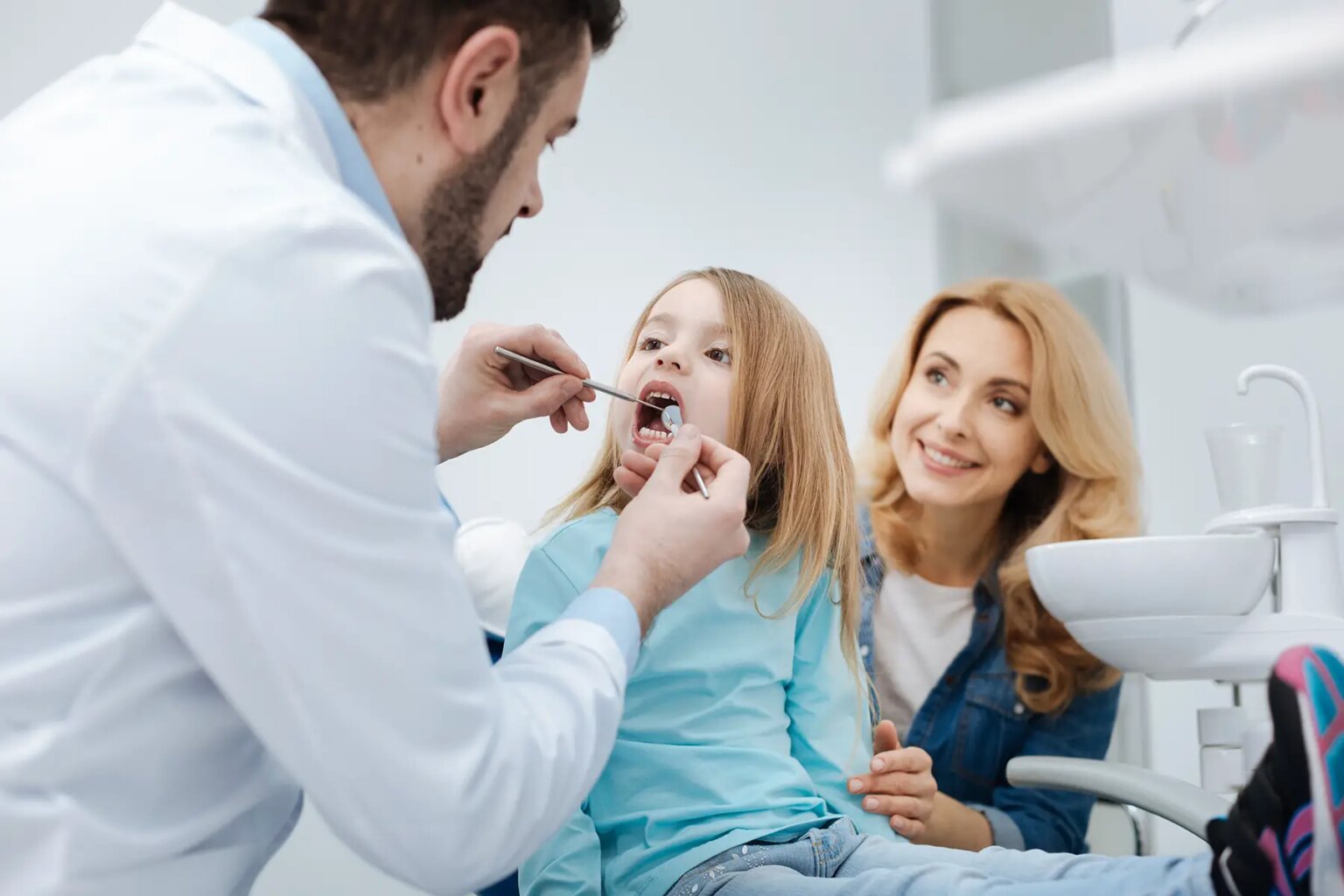It’s unlikely that a trip to the dentist is at the top of your bucket list. Getting your children’s teeth checked by a professional in the Netherlands doesn’t need to be an ordeal.
With a good dose of parental TLC and a dental practitioner with calming, caring bedside manners, there’s no reason why your child’s visit to the local clinic will turn into a tearful tantrumfest; in fact, your kids may even look forward to regular visits.
Lassus Tandartsen
Need a child-friendly dentist? Lassus Tandartsen has three state-of-the-art clinics in Amsterdam offering a wide range of children’s dental treatments. Their expat-friendly team provide dedicated services for children, including cavity treatments, teeth development checks, braces, and more. Lassus Tandartsen clinics are open 7 days a week, ensuring a welcoming check-up for your child.
Children’s first experience dental care in the Netherlands
It’s never too soon to take your child to the dentist: becoming familiar with the sights and sounds of the clinic can quickly make them feel at home and say “aaaah” without any fear.
That’s the view of Boukje Scheepstra, a dentist who specializes in pediatric dentistry at Lassus Tandartsen, which provides dental services at three clinics. She says both parents and dentists have vital roles to play in ensuring that taking a child to the dentist is stress-free.
“Dentists are trained to provide a warm and welcoming environment to put children (and parents!) at ease,” she explains. Boukje recommends an initial familiarization visit at two years old. “Around that age, we see children who have little accidents and fall on their teeth. It’s good if their first dentist visit isn’t when they are already under a lot of stress”, explains Boukje.
“Your child can ride in the dentists’ chair, and the dentist may have a quick look into your child’s mouth to count the teeth and molars”, adds Boukje. “But if that’s too stressful for the child, we do the tooth count in a normal chair until they grow more comfortable.”
In addition to the oral exam, “we also give advice on dental, including cleaning techniques, thumb-sucking, and pacifier habits. We even offer nutritional guidance,” notes Boukje.
Striking the right tone: the dentist
A good pediatric dentist will ensure their little patients are relaxed (and as co-operative as little-humanly possible!) during the visit. That means getting the tone just right.
“If, for example, during the check-up the dentist notices cavities, they handle it with due thought and care,” says Boukje. “They will take time to discuss it playfully with the child, and communicate in an open and friendly way.”
The ambiance is important too. Most dental care clinics for children in the Netherlands are bright, airy, welcoming places with TVs on the walls, soothing music, water dispensers, and smiling staff putting everyone at ease.
Modeling behavior: the parent
Kids are super-intuitive. If you’re anxious about visiting the dentist, you can bet your bottom dollar they’ll pick up on that.
A sizeable percentage of adults have a dentalphobia. A 2009 Dutch study concluded that 3% had what was classed as a phobia.
“Addressing your own concerns about visiting the dentist certainly helps allay any anxieties your children have. In any case, there are a number of things a parent can do at home to make children feel more comfortable and confident before and at the dentist,” says Boukje.
Good oral hygiene is key, because positive behaviors nip any potential problems in the bud. Dutch guidelines recommend twice-daily tooth brushing with fluoride toothpaste. They also recommend restricting the consumption of foods and drinks to a maximum of five to seven times a day.
A 2015 report by BMC Oral Health cites other parent-led influences on a child’s oral health behaviors. These include routines, time, family composition, division of family roles, parenting, parental stress, and even parental depression.
“For children whose first tooth has erupted, clean once a day with a children’s toothpaste containing fluoride. This strengthens teeth and molars. Children aged three to five should clean twice a day with the same toothpaste. There is another special toothpaste for kids aged five to 12. Beyond 12, it’s okay to use an adult fluoride-based toothpaste,” says Boukje. “Keep in mind that until the age of 10, a child isn’t fully capable of brushing their own teeth. As a result, it’s the parents’ responsibility to help and supervise.”
“To complement this regime we also recommend your child visits the dentist every six months for a check-up,” she adds.
From baby teeth to wisdom teeth
A good dental care regime staves off most problems for children in the Netherlands, but Mother Nature has her own agenda.
“Your child will start to lose his or her baby teeth at around six years old. This is also when the first adult molars start appearing,” says Boukje.
“After that, premolars, canines and incisors will erupt into the gaps left by primary teeth that have fallen out. This process is usually completed by the age of 13. At around the age of 10, large molars come out. It’s also possible that, between the ages of 18 to 24, the third set of molars (wisdom teeth) breaks out,” she adds.
Unfortunately, some cavities appear while the teeth are not fully erupted. This is due to the food particles and bacteria which lodge in the deep grooves on molars. So “it’s important to check them regularly and, if necessary, to seal the molars with a thin layer of synthetic resin or fluoride-holding cement”, explains Boukje.
Brace yourself!
A set of braces can correct children’s teeth that are protruding or crooked. Beyond cosmetic reasons, braces have health benefits.
“Straight teeth make it possible to bite, chew, talk, and laugh well. The position of some teeth can lead to gum damage, dental asymmetry in the face, malformed jaws, or an overbite,” Boukje explains.
“Typically, your child will have an initial consultation about the individual treatment plan, followed by an investigation (X-rays, mouth examination and creation of jaw and teeth models), placing of the braces and check-ups every four to eight weeks during the treatment period,” she explains.
Maintaining healthy teeth is a lifelong journey from an early age. The good news is that, apart for orthodontics and other very specific treatments, your child’s dental care is entirely covered by their Dutch health insurance until their 18th birthday.
Insurance for dental treatment
If you are covered by public health insurance in the Netherlands, this will include general dental treatment costs for children aged up to 18. You can also opt for private health insurance which offers a greater level of coverage, at a higher cost. Expat-friendly international health insurance companies that provide dental coverage include:







